- Home
- Chris Ryan
One Good Turn Page 6
One Good Turn Read online
Page 6
'Ready, Sergeant Major?'
'Ready, sir.'
'And one of the rifles is loaded with a blank?'
'That's right, sir.'
'And no one knows who's got it? Good. Time to hood the prisoner.'
The last thing that Ransom saw before the hood went on was an ambulance passing by at the head of the little street. He wondered if it was for him. He heard the sergeant call out 'Ready', but his mind was racing. He thought, wildly, that maybe, just maybe, they had found the injured captain and had brought him all the way to the headquarters to save his life. That was it. He was going to be saved.
He could finally take the leave that was owed him and go back home. He imagined relaxing in the carriage as the train from Paddington rushed towards Exeter. He'd be impatient as the little local train went slowly along the slopes of Dartmoor until it reached his village. But he'd enjoy every tree and field and blade of grass he passed. His father would be waiting at the station with the horse and trap. His mother would be waiting at the old farmhouse door. He could picture the dogs playing round his feet. He could smell his favourite meal cooking. Everything was going to be...
The firing squad was well trained. After the first command they followed the sergeant's hand movements, so the prisoner would not know when the fatal shots were coming. And, because bullets travel faster than sound, Ransom didn't hear the shots from the firing squad and he didn't feel them smash into his chest.
For the padre in the ambulance and the wounded officer lying on a stretcher in the back, the sound of the shots was shocking and obscene. They knew it could mean only one thing.
Hearing horses' hooves on cobbles, the major turned round and was amazed to see an ambulance rushing towards him. He went up to the driver.
'Who the devil's this for?' he asked.
'Officer in the back, sir. Mission of mercy, as it were.'
The major walked round to find the padre helping a heavily bandaged man down the flimsy wooden steps.
'This is Captain Stokes, sir,' the padre said. 'He might have a story to tell about the... prisoner.'
'Just let me see him,' the wounded officer said.
The sergeant major had cut him down and he lay, half on his side, slightly curled up.
'Take his hood off, Sergeant,' the padre said. 'If you wouldn't mind.'
The padre didn't look at the dead man on the ground. He watched the face of the wounded officer. When the hood came off the officer flinched as if he had been struck. Then he composed his face and said: 'That's him. That's the man who saved me. Poor fellow deserved a medal, not a firing squad.'
The padre stood back and took a deep breath. What could he say?
'You tried to do the right thing by coming here.'
'I know. This is a dreadful injustice. There must be an inquiry. But, whatever else, I will tell his family of his bravery, and I'll make sure he's not forgotten.'
Postscript
I hope that no one reading this is trying to find a message. Messages are everywhere in the modern world and we probably think too much of them.
This account was written by me, Captain Bertram Stokes, after the war was over. It was a long time before I could bear to think about it and even longer before I could bring myself to put pen to paper. The whole bloody war was like that scene in the crater. Good men killing bad men. Bad men killing good men. Cowardice and courage. Selfishness and sacrifice. But war is like a big machine that devours everything with equal relish: the good and the bad, the weak and the strong. It's only the lucky that get out.
For years I struggled to set the record straight but I failed. I should never have said that Ransom was a hero. If officials refuse to admit that these kangaroo courts martial were wrong to sentence poor shell-shocked boys to death, they'll never admit that they shot a hero by mistake.
No, once a man is dead, that is that. The events are carved into the record as clearly as those hundreds of thousands of names are chiselled into stone memorials from Flanders to small villages all over these islands. Perhaps one day, someone will see this story and help set the record straight. One good turn deserves another but sometimes the debt is so great it can never be repaid. Only remembered.
Table of Contents
Chris Ryan One Good Turn
Chapter One
Chapter Two
Chapter Three
Chapter Four
Chapter Five
Chapter Six
Chapter Seven
Chapter Eight
Chapter Nine
Chapter Ten
Chapter Eleven
Postscript

 Global Strike
Global Strike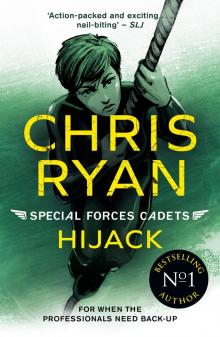 Hijack
Hijack Special Forces Cadets 2
Special Forces Cadets 2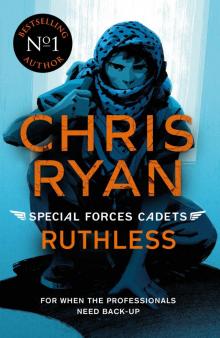 Ruthless
Ruthless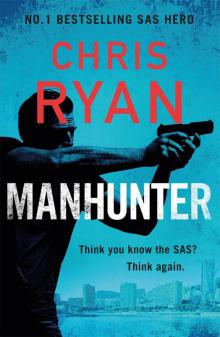 Manhunter
Manhunter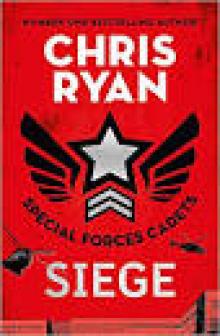 Special Forces Cadets 1
Special Forces Cadets 1 Red Strike
Red Strike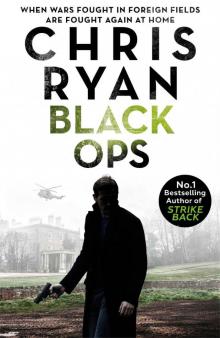 Black Ops
Black Ops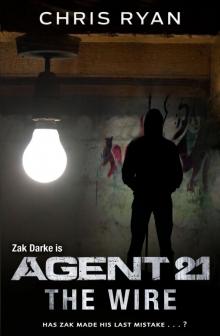 Agent 21: The Wire
Agent 21: The Wire Land of Fire
Land of Fire Alpha Force: Fault Line
Alpha Force: Fault Line Under Cover (Agent 21)
Under Cover (Agent 21) Endgame (Agent 21)
Endgame (Agent 21) Red Centre
Red Centre Blackout
Blackout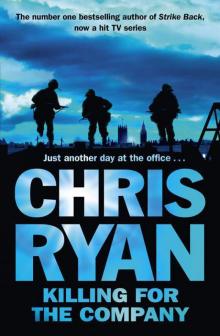 Killing for the Company
Killing for the Company The Watchman
The Watchman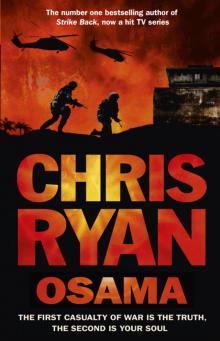 Osama
Osama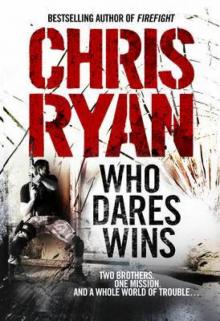 Who Dares Wins
Who Dares Wins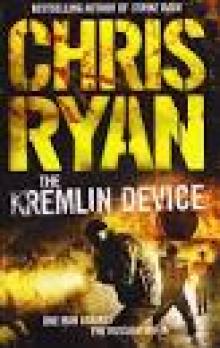 The Kremlin Device
The Kremlin Device Hunter Killer
Hunter Killer Alpha Force: Untouchable
Alpha Force: Untouchable Stand By Stand By
Stand By Stand By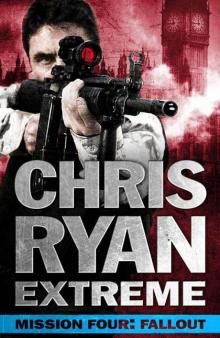 Chris Ryan Extreme: Hard Target: Mission Four: Fallout
Chris Ryan Extreme: Hard Target: Mission Four: Fallout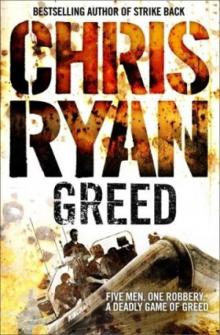 Greed mb-1
Greed mb-1 Alpha Force: Desert Pursuit
Alpha Force: Desert Pursuit Strike Back
Strike Back Greed
Greed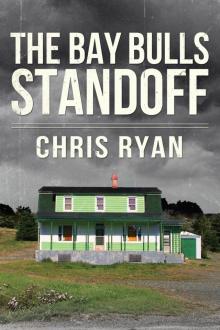 The Bay Bulls Standoff
The Bay Bulls Standoff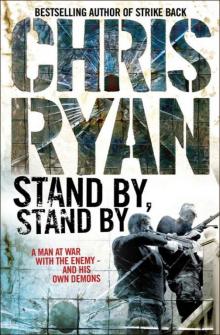 Stand By, Stand By gs-1
Stand By, Stand By gs-1 Outbreak
Outbreak Hunted
Hunted Vortex cr-4
Vortex cr-4 Rat-Catcher
Rat-Catcher Vortex
Vortex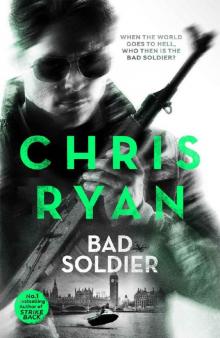 Bad Soldier
Bad Soldier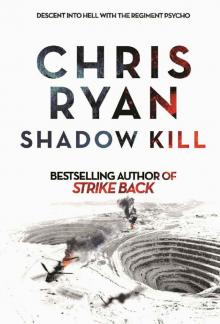 Shadow Kill: A Strikeback Novel
Shadow Kill: A Strikeback Novel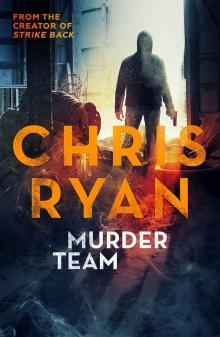 Murder Team (Kindle Single)
Murder Team (Kindle Single) One Good Turn
One Good Turn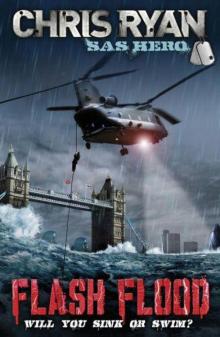 Flash Flood cr-1
Flash Flood cr-1 Night Strike
Night Strike Wildfire
Wildfire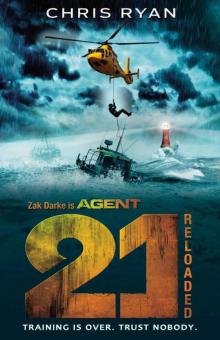 Agent 21: Reloaded: Book 2
Agent 21: Reloaded: Book 2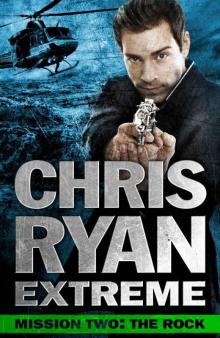 Chris Ryan Extreme: Hard Target: Mission Two: The Rock
Chris Ryan Extreme: Hard Target: Mission Two: The Rock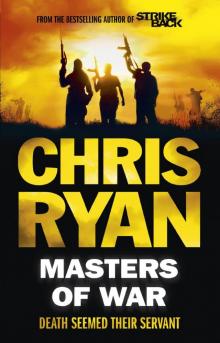 Masters of War
Masters of War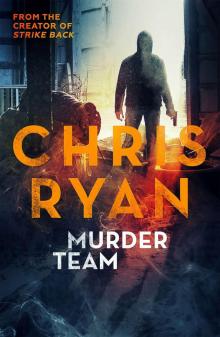 Murder Team
Murder Team War Dog
War Dog Wildfire cr-2
Wildfire cr-2 Survival
Survival The One That Got Away - Junior edition
The One That Got Away - Junior edition The Hit List
The Hit List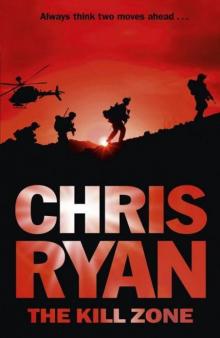 The Kill Zone
The Kill Zone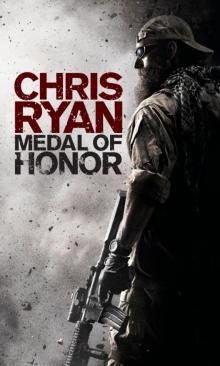 Medal of Honor
Medal of Honor Battleground
Battleground Twister
Twister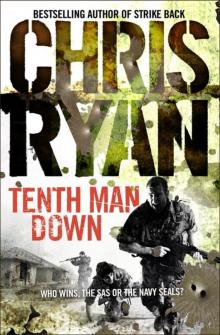 Tenth Man Down gs-4
Tenth Man Down gs-4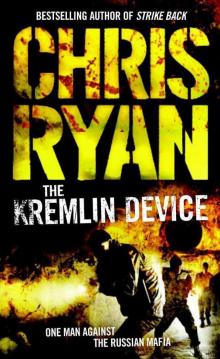 The Kremlin Device gs-3
The Kremlin Device gs-3 Hostage
Hostage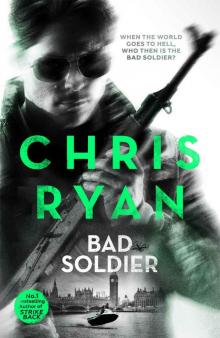 Bad Soldier: Danny Black Thriller 4
Bad Soldier: Danny Black Thriller 4 Alpha Force: Blood Money
Alpha Force: Blood Money Firefight
Firefight Chris Ryan Extreme: Hard Target: Mission One: Redeemer
Chris Ryan Extreme: Hard Target: Mission One: Redeemer Hit List
Hit List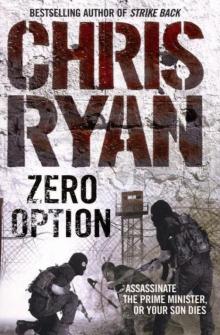 Zero Option gs-2
Zero Option gs-2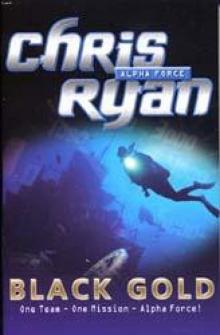 Black Gold
Black Gold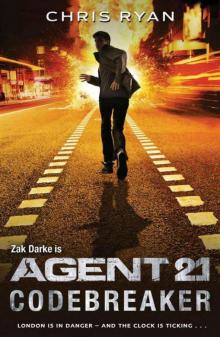 Agent 21: Codebreaker: Book 3
Agent 21: Codebreaker: Book 3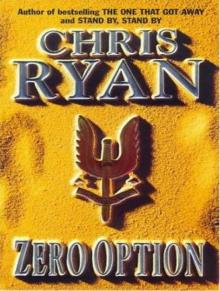 Zero Option
Zero Option Ultimate Weapon
Ultimate Weapon Tenth Man Down
Tenth Man Down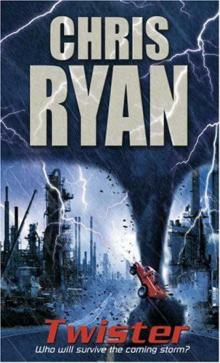 Twister cr-5
Twister cr-5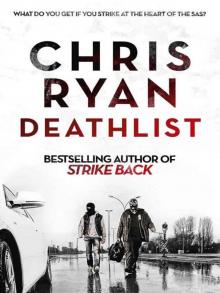 Deathlist
Deathlist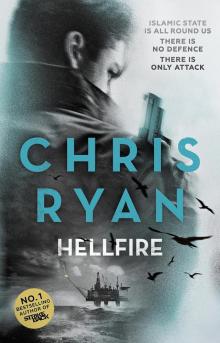 Hellfire
Hellfire Flash Flood
Flash Flood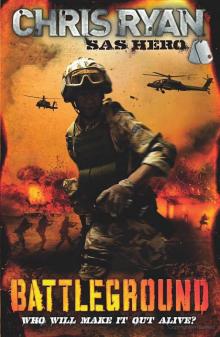 Battleground cr-6
Battleground cr-6 The Increment
The Increment